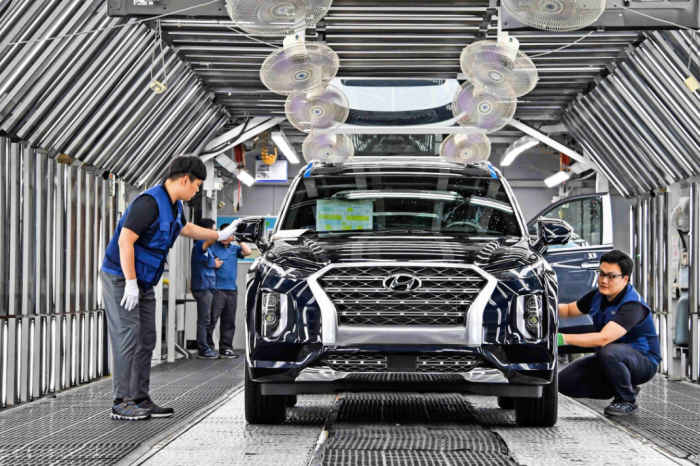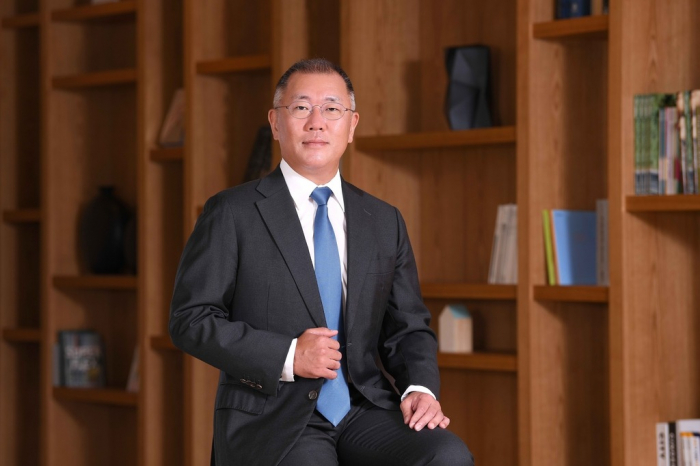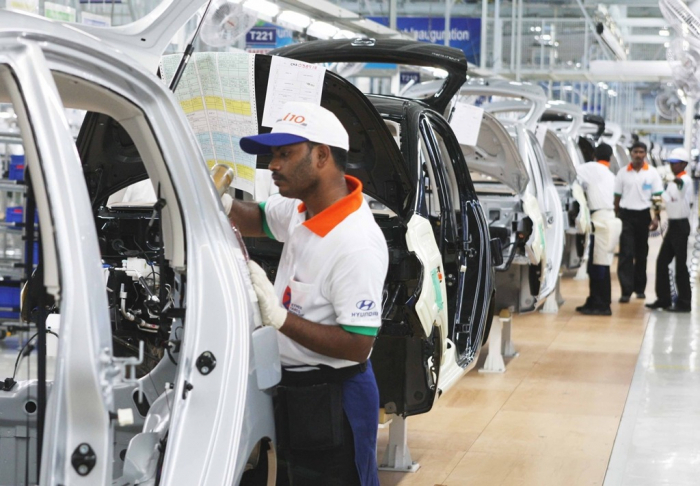Hyundai’s quantum leap: how it shines through in crisis
The automaker has increased its global presence with a robust supply chain, innovative strategies and expansion into new markets
By May 07, 2023 (Gmt+09:00)
LG Chem to sell water filter business to Glenwood PE for $692 million


Kyobo Life poised to buy Japan’s SBI Group-owned savings bank


KT&G eyes overseas M&A after rejecting activist fund's offer


StockX in merger talks with Naver’s online reseller Kream


Mirae Asset to be named Korea Post’s core real estate fund operator



Hyundai Motor Co. and its affiliate Kia Corp. are slated to log a combined 150 million units of car sales this month. The carmakers of Hyundai Motor Group, which ranked third in global vehicle sales last year after Toyota and Volkswagen, have taken a huge leap forward after the pandemic.
As of April, the two carmakers have sold a total of 149.8 million cars since 1962, when Kia launched Korea’s first tricycle. The cumulative car sales of Hyundai and Kia reached 94.2 million and 55.7 million, respectively.
Given that the two companies sell an average of 600,000 vehicles per month, their combined sales are expected to surpass 150 million in May.
The group has posted big achievements in recent years for three key reasons: an integrated supply chain, profit-oriented strategies and expansion in both the West and Asia's emerging markets.
ROBUST SUPPLY CHAIN DURING COVID-19
Global auto giants such as General Motors Co., Ford Motor Co. and Fiat Chrysler Automobiles N.V. suspended factory operations amid COVID-19, slashing microchip orders in the process. Later, faced with a shortage of semiconductors, some of them then couldn’t respond to increased demand for new cars.
Hyundai Motor Group capitalized on the surging demand for new cars in 2021 by operating plants without interruption. It also developed 174 alternative elements to automotive chips in preparation for a prolonged supply crisis and vertically integrated its production process, from sourcing materials to launching finished products.

“One needs to look no further than the ongoing supply chain challenges to understand why vertical integration is necessary,” group Chairman Chung Euisun said during an interview with Newsweek in April 2022. The magazine named him one of the World's Greatest Auto Disruptors.
“While strategic partnerships and a robust supply chain will always be essential, in this business there are areas where we need to be self-sufficient, from components to finished goods,” Chung added.NEW MARKETING STRATEGIES IN US
The group also expanded its US market share with targeted strategies for its SUVs in the country over the past three years.
It shifted its marketing focus from price competitiveness to advanced technologies, launching two midsized SUVs — the Hyundai Palisade in late 2018 and Kia Telluride in January 2019. The group embedded advanced driver assistance systems, which detect obstacles and driver errors, in the two vehicles to justify higher prices.
Driven by strong SUV sales, the combined US market share of the two carmakers rose to 8.6% in the first 11 months of 2020, up from 7.8% in the same period of 2019, according to US auto research firm Wards Intelligence. The market share rose further to 10.6% last year.
The group has also enhanced profitability by scaling back car leasing in the US. Once a lease term ends after two to three years, leased cars are released en masse into the pre-owned market, causing the car value to plummet and even influencing new car prices. The group shrank its ratio of cars for lease from 25% of total sales to less than 10% after the COVID-19 outbreak.

MORE FOCUS ON EUROPE, INDIA
Hyundai Motor Group saw its sales in China peak at 1.8 million units in 2016, up 53% from 2011. But the figure plunged after the country in 2016 began imposing restrictions on Korean imports when Seoul deployed a US Terminal High Altitude Area Defense (THAAD) System that year. Last year, it sold only 340,000 units in China.
The automaker has shifted its focus to Europe and India. Last year, it secured 9.4% of Western Europe's market share and ranked third with 21.1% in India, the world’s third-largest auto market.
It is set to ramp up production in India, the world’s largest country by population. Hyundai Motor announced in March it will acquire General Motors' Talegon Plant in Maharashtra, India, including land, buildings and equipment, to significantly increase its presence in the fast-growing market.
Write to Il-Gue Kim and Sungsu Bae at black0419@hankyung.com
Jihyun Kim edited this article.
-
 AutomobilesHyundai Mobis to lead mobility platform innovation: CEO Cho
AutomobilesHyundai Mobis to lead mobility platform innovation: CEO ChoApr 28, 2023 (Gmt+09:00)
2 Min read -
 AutomobilesHyundai Motor to pay quarterly dividends with record Q1 profit
AutomobilesHyundai Motor to pay quarterly dividends with record Q1 profitApr 25, 2023 (Gmt+09:00)
3 Min read -
 Electric vehiclesHyundai ties up with LG, SK for $5.3 bn US EV cell plants
Electric vehiclesHyundai ties up with LG, SK for $5.3 bn US EV cell plantsApr 21, 2023 (Gmt+09:00)
2 Min read -
 Electric vehiclesHyundai Motor seeks remedies after GV70 exclusion from US subsidies
Electric vehiclesHyundai Motor seeks remedies after GV70 exclusion from US subsidiesApr 18, 2023 (Gmt+09:00)
4 Min read


